How Cold Is Too Cold For School?
A look inside the decision to cancel school and its consequences.
The decision to delay or cancel school is sometimes difficult, and this week’s cold weather will again put school officials to the test.
Below zero temperatures are expected tomorrow and Thursday across the region, and the school is already buzzing with speculation. How cold is it going to get? Will we have school or not? Will yet another cancellation push back graduation?
According to WTAJ Meteorologist Joe Murgo, temperatures will drop below 10° tonight and not rise above 10° until at least Friday afternoon.
“This is going to be the longest such stretch of cold since at least 2014 and 2015, perhaps back as long as the middle 1990s,” said Murgo.
The possibility of school delay or cancellation is on many student’s minds, but what actually goes into the decision to delay or cancel school? And how cold is too cold?
In Pennsylvania there are no set laws or regulations that a school district must follow when delaying or canceling school. The final say comes from each individual district’s superintendent.
Tyrone’s superintendent Cathy Harlow knows that no matter what her decision, it will not meet the wishes of every student or staff member in the district.
“This is one of the most difficult aspects of the job. I’m not a trained meteorologist so I rely heavily on those that I am in contact with to help make the best decision for the safety of our staff and students,” said Harlow.
Harlow is well aware of the criticism she can receive from those who don’t agree with her decisions.
“I know that I cannot make everyone happy so I try not to take the criticism personally. Everyone has a different opinion on what should be done,” said Harlow. “I try to make the best decision I can based on the information I have available with safety as the number one priority.”
Harlow says that she relies on advice from many other people to help her to make an informed decision.
“I consult with the transportation director, bus contractors, superintendents from surrounding school districts, and road crews, when possible,” said Harlow. “I also review weather forecasts from multiple sources.”
One of those sources may even include Murgo.
Over the years, WTAJ’s chief meteorologist says he has had his fair share of school officials consult him, but he understands how complex the decision can be and always limits his advice to only the weather.
“There is a lot more involved in school decisions than the obvious,” said Murgo, “Will some diesel buses have a tough time starting, leaving some students out for longer periods of time? Will there be frozen pipes? What happens if an old furnace can’t keep up? Therefore, forecasting school closures is a lot more than forecasting the weather.”
According to Murgo, one of the difficult aspects of his job is when he gets a forecast wrong and it potentially impacts students.
“From the weather side of things, sometimes I feel upset when a decision is made that is made [based on] a bad forecast or a domino effect. In other words, one school closes and the assumption that the weather is going to get worse is made. Sometimes that is not the case and we end up sending students out in more danger than if we get them [to school] on schedule,’ said Murgo.
When the issue is temperature, like this week, the decision to delay or cancel has more to do with preventing hypothermia than with the road conditions.
Harlow said that Blair County schools typically use -10° with a wind chill to delay or cancel school.
But even if temperatures don’t drop that low, hypothermia can occur in weather as warm as 50° in wet and windy weather. Murgo knows how dangerous the cold can be and urges all students to be safe.
“There are ways to dress properly, but is there a way to make sure every kid is dressed properly? Sadly, no,” said Murgo, “And while some kids may have the luxury of waiting for the bus in a warm car, there are many that don’t, and all of those delays for kids leaving their cars to get to the bus slows the route, and increases the wait time for kids who do not have that luxury.”
Those who do not ride buses and walk to school are especially impacted by the cold weather.
Freshman Kaila Moon often walks to and from school and knows there is a limit to how cold it can be before it’s just too cold.
“When we have layers and layers of clothing on and I’m still shivering, that’s too cold,” said Moon.
Not only can the temperatures be a serious issues, but sidewalk conditions have also been a factor over the past week.
“It’s dangerous. On Friday there were kids walking on the road because the sidewalk was so icy and slippery,” said Moon.
When it snows or ice forms on the roads, bus drivers like Craig Lowery have one of the greatest responsibilities of all, getting a bus full of students to and from school safely.
Lowery has had his fair share of difficult mornings and says it can be a very stressful job.
“It just takes a lot of concentration and trying to keep [the students] quiet so I can focus on what’s going on with the weather. The back roads are a lot worse than the main highways. It’s just a lot of focusing on what you are doing,” said Lowery.
Yet another concern some students have about cancellations is graduation. One more school cancellation this year will result in the senior’s graduation day being pushed back. For that reason, many seniors do not want any more snow days.
“I want to graduate on time,” said senior Emma Hoover. “While I enjoy having time off now, I don’t want to make it up in the summer.”
The district does take graduation into account and builds several snow make up days into the schedule so the seniors can graduate on time. However, if cancellations occur this week and graduation needs to be moved, it’s just going to have to happen, according to Harlow.
“We typically try to build [enough snow make-up days] into the calendar as the average number of snow days we’ve have had over the past three years,” said Harlow.
However, this year the district has already used up all its built in days, so any additional snow days will be added to the end of the school calendar.
If Murgo’s forecast holds, staggeringly low temperatures will hit the region soon enough, and whatever happens later this week will probably be something students and faculty will talk about for a while.
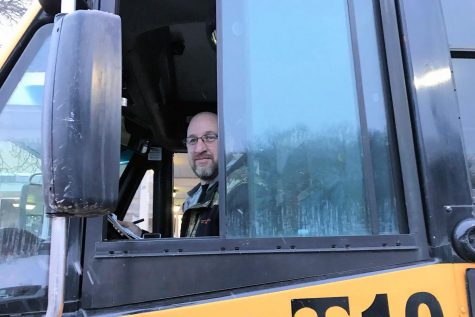
With snow in the air, Tyrone bus driver Craig Lowery prepares for his morning run to the GACTC in Altoona. Depending on the weather, Lowery’s morning drive can be a stressful experience.
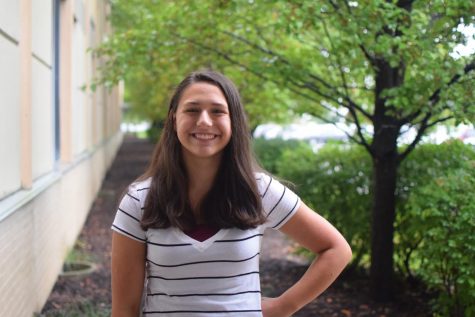
Hey there! My name is Grace LeGars and I am a junior for the 2018-2019 school year. This is my first year being a part of the Eagle Eye staff. I am a varsity...

Mr. Todd Cammarata, or "TCamm" as he is known to the Eagle Eye Staff, has been advising the Eagle Eye since 2013. He also advises the Eagle Yearbook...




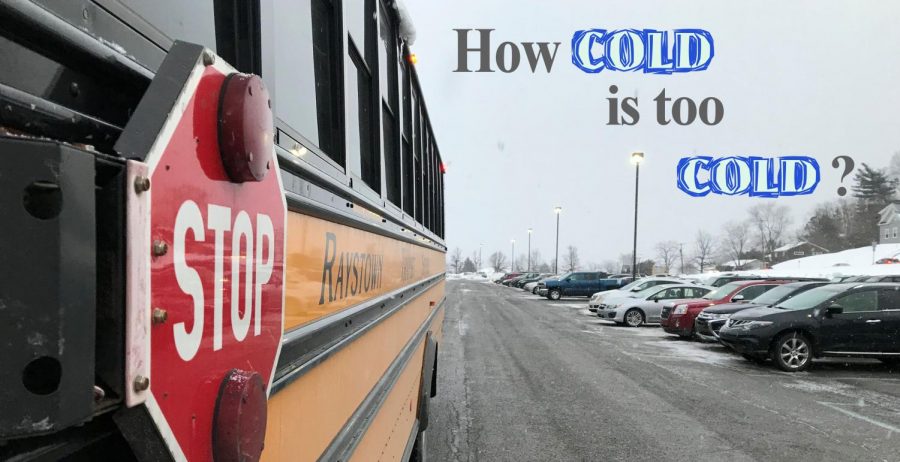



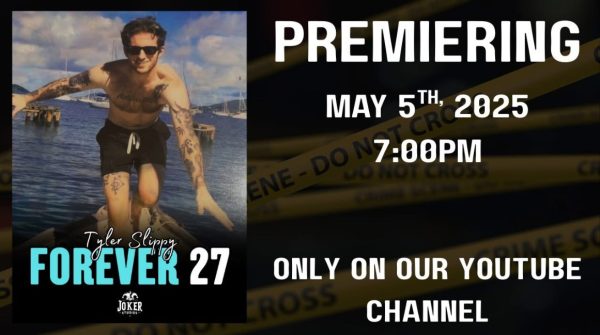
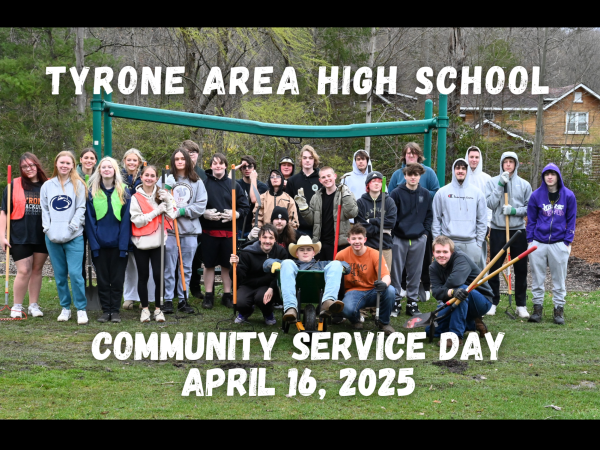
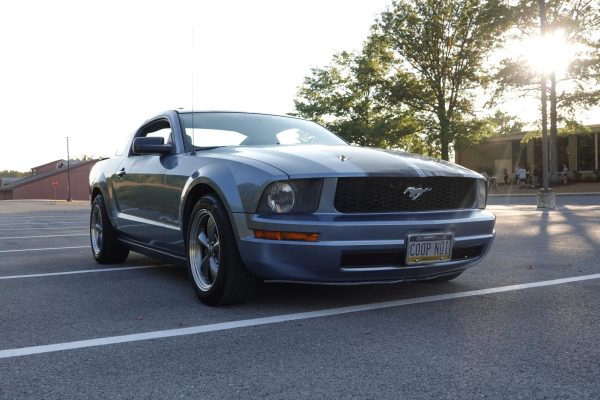
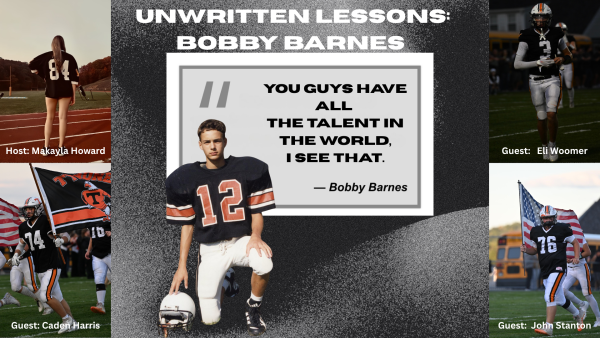

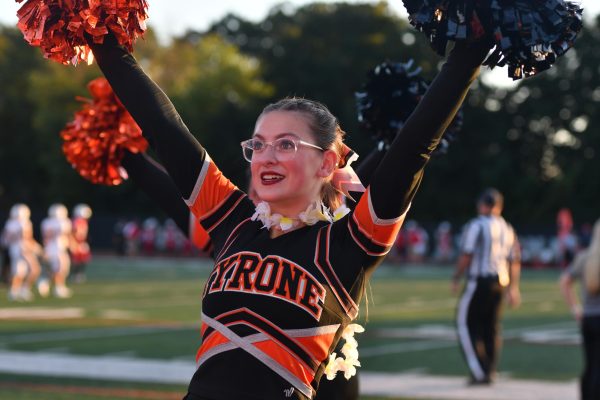
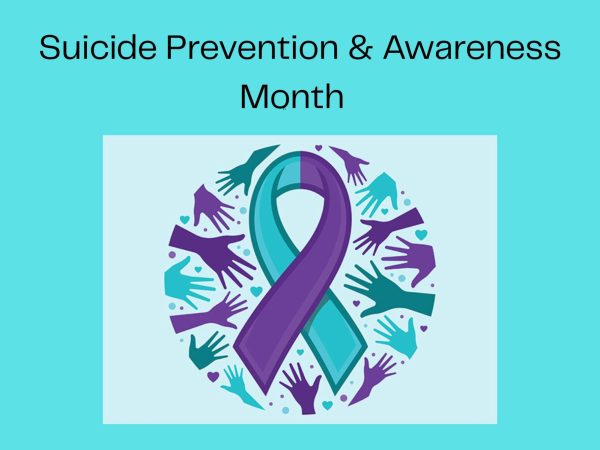
Olivia Grugan • Jan 29, 2019 at 5:40 pm
This is very well written, Grace. I learned a number of things that I didn’t know before. Thank you for informing us.
Paul Neatrour • Jan 29, 2019 at 2:11 pm
Nicely written article!
christian • Jan 29, 2019 at 1:32 pm
I vote we cancel 🙂
Abigail Kaspick • Jan 29, 2019 at 1:28 pm
i believe that once the temperature reaches past the -10 you should’t have school.. or we should at least wait until the temperature rises. kids of all ages that don’t own a car, or their parents can’t drive them and they live to close so they aren’t allowed to ride the bus. All of these reasons lead to kids having to walk to school, and if school isn’t delayed or canceled then they have to walk in negative degree weather. And as we are aware some kids can’t afford proper winter clothes such as hats, scarfs,gloves and mittens. having said this kids like that would have to walk to school in negative weather which might lead to frostbite and other illnesses like the cold. also if it was snowing outside kids could get it more easily even with the traffic guards, also the ice on the road could be a danger as well. so all in all i think that it is not a good idea to have school in the negative degree weather.